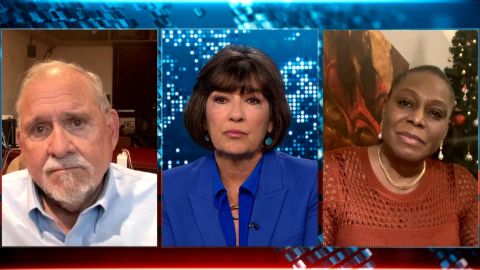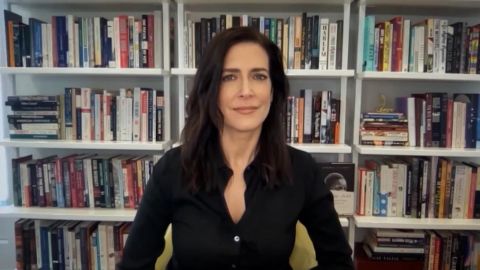Read Transcript EXPAND
DR. AYOADE ALAKIJA, CO-CHAIR, AFRICA VACCINE DELIVERY ALLIANCE: What we do know about Omicron and all the variants to come is that we don’t know. I think it would be very presumptuous of us as a global health community to say that, well, we know that this disease is mild. Mild in whom? We have only had it, identified, as you rightly said — well, actually, first of all, in Botswana, and then taken back to South Africa for confirmation. Our information from Botswana is that the first people who were infected were actually diplomats who came from a country yet to be determined so far. So, where did this thing start? It was identified in South Africa. Is it mild? Well, perhaps it is mild until it chooses not to be. Is it less severe? Has it got different receptors binding to different places in people? For instance, we’re seeing more and more children infected. So the question I would say, Christiane, is not whether we can follow what South Africa has demonstrated as a peak in their sort of current surge of the pandemic or the epidemic in that country. But what we would need to begin to look at is the individual circumstances. And epidemiologists — excuse me — epidemiologists all over the world are looking crazily at, at the moment and saying, what are the circumstances in South Africa? South Africa is in summer. People have gone to their summer homes. They have gone on holiday. Offices are closed. There have been public health measures. And I also want to stress this, Christiane, that it is not just vaccines. We have spoken about vaccines, but also there are specific public health measures that they put in place very, very quickly indeed. I do not share the optimism of the world that Omicron is mild. I think people are tired and sick and tired of COVID. And they want it to be over. But COVID is clearly not sick and tired of us. And so I agree when my colleague says just now that we could be breeding super variants, particularly in parts of the world where you talked about 7 percent vaccination. But, in reality, Christiane, the definition of fully vaccinated has now shifted from two doses to three doses. So, Africa has actually rolled back the gains, and now we are less than 1 percent fully vaccinated, because there are very, very few people across Africa who have three doses.
About This Episode EXPAND
Can we learn to live with COVID-19? Important studies point to the Omicron variant being less severe. The funeral for Archbishop Desmond Tutu took place on New Year’s Day. One of Tutu’s good friends, Graça Machel, joins the show for an exclusive interview. Andrea Elliott’s new book “Invisible Child” chronicles seven years in the life of a homeless girl named Dasani in Brooklyn.
LEARN MORE

